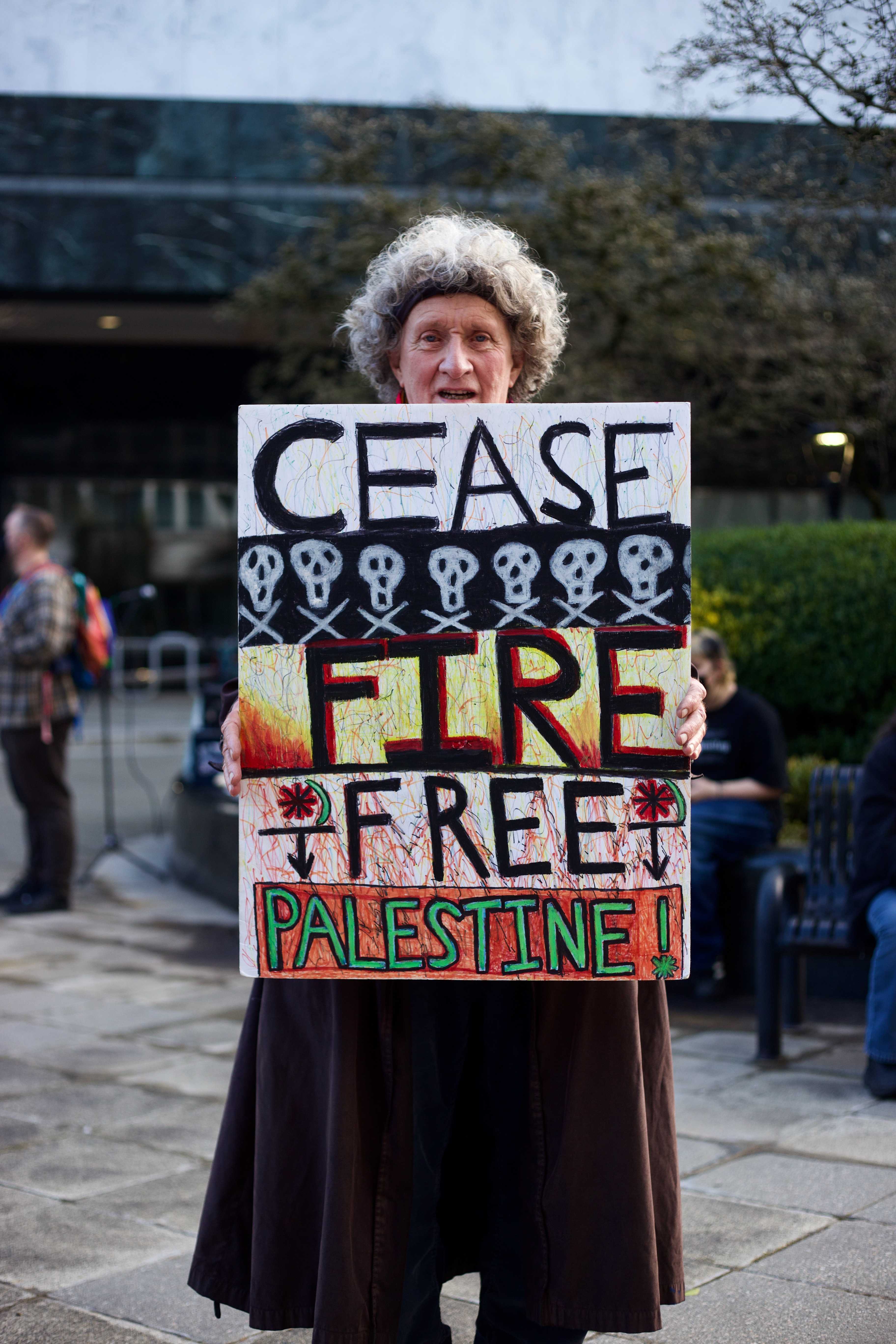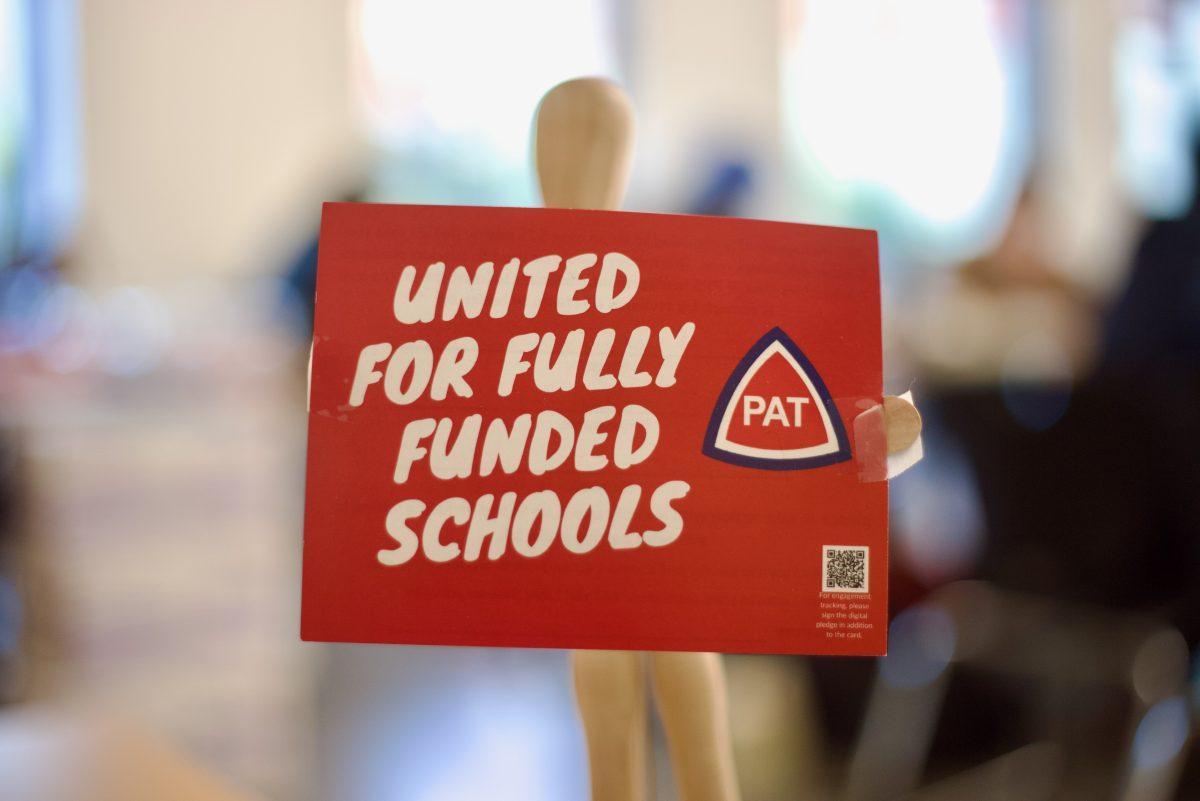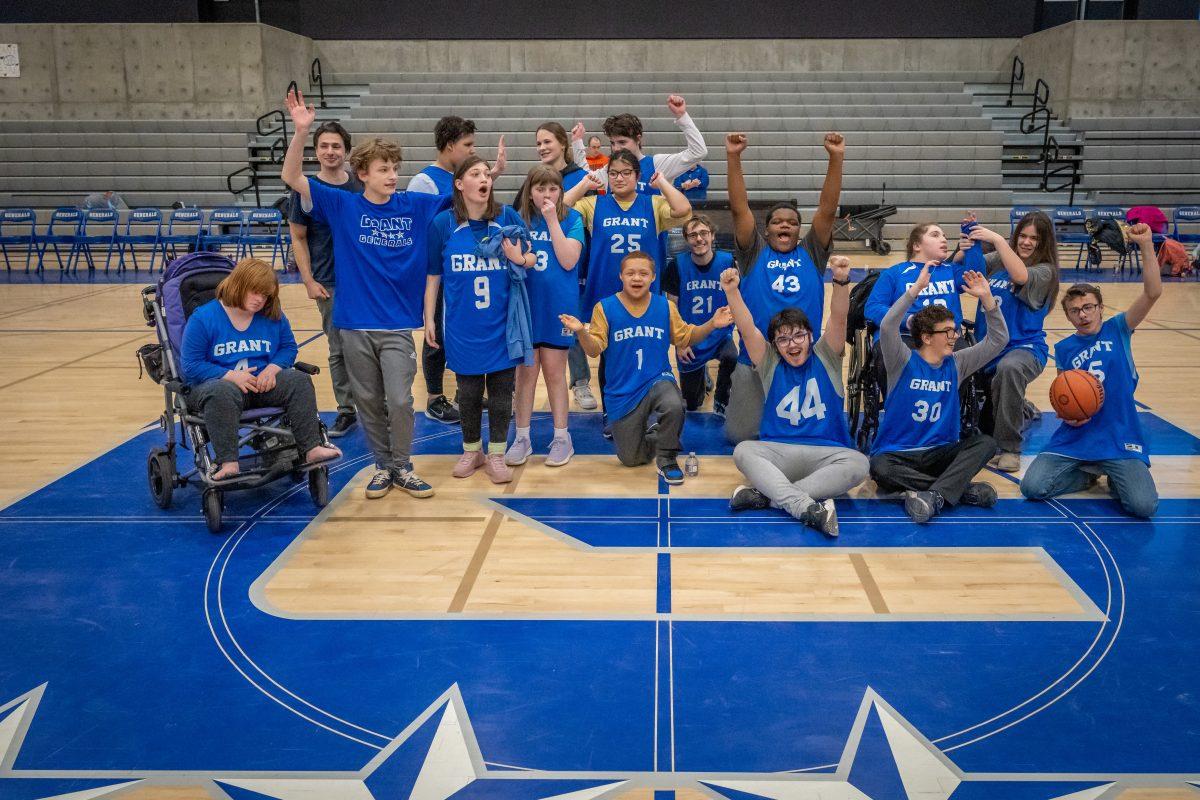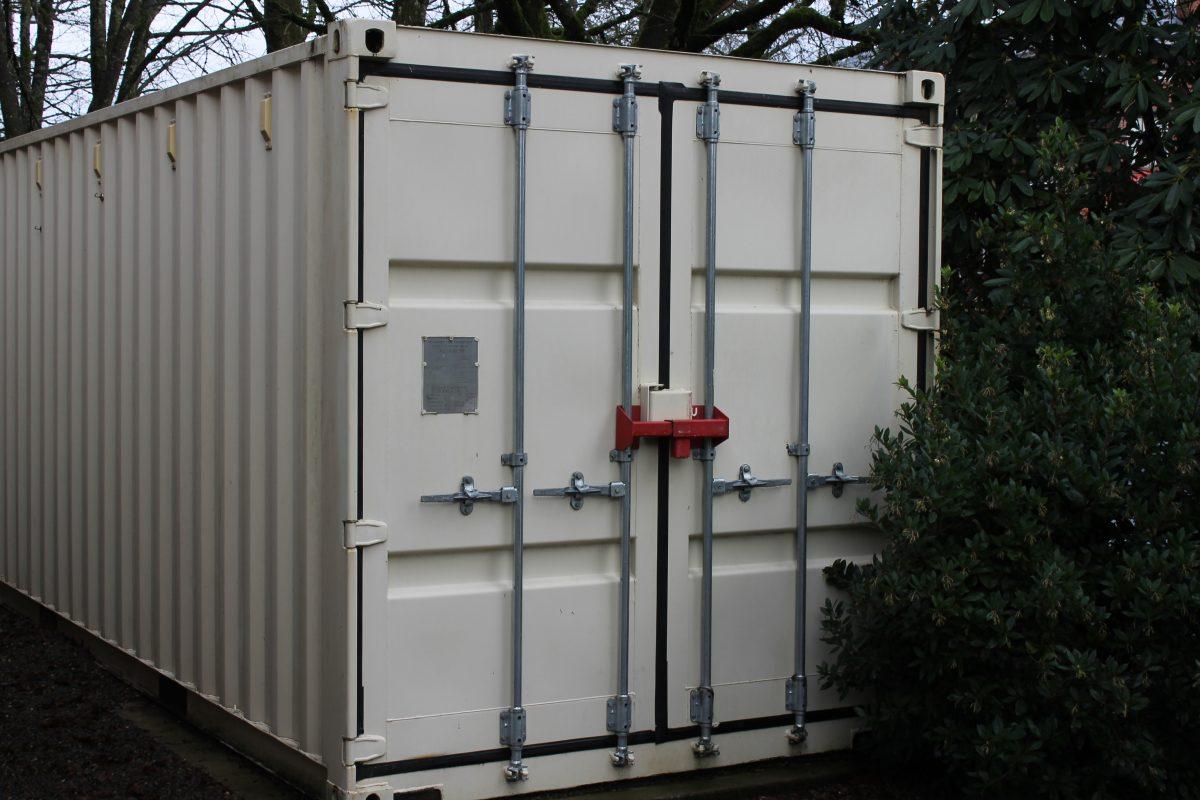On Feb. 23, 2024, medical professionals and Portland-based groups such as Entifada, Jewish Voice for Peace and the Oregon to Palestine Coalition gathered in protest directly outside of U.S. Senator Ron Wyden’s office, surrounded by a crowd of several hundred supporters. An array of speakers stood at the forefront of the action, demanding a ceasefire in Gaza and calling attention to acts of violence committed against the people of Palestine. The sound of banging pots and pans and encouraging honking from nearby traffic filled the neighboring streets.

Protesters made a direct call to local government officials urging for an immediate and permanent ceasefire to the Israel–Hamas war as well as provisions of humanitarian aid for Gaza. They specifically addressed Senator Wyden and Representative Earl Blumenauer, who have yet to respond directly to the concerns and demands voiced by event organizers at the time of publication.
International tensions are on the rise as the Israel–Hamas war continues. The conflict has only heightened in the last year due to the significant traction it has gained on social media platforms. Many popular brands and companies are currently under scrutiny for their financial and political support of Israel in the conflict. Many pro-Palestinian activists have denounced the companies, calling for them to be boycotted.
On Oct. 7, 2023, Hamas, a Palestinian political and militant group, launched an attack on Israel. The bulk of the attack occurred at Tribe of Nova, a music festival located along the southern coastline of Israel. Hamas also fired rockets at a number of bordering Israeli communities, including Kibbutz Be’eri, where 117 civilians were murdered. The act of terrorism was one of the deadliest in the ongoing Israel–Palestine conflict, claiming the lives of roughly 1,200 Israeli people. A number of Israelis that were not immediately killed by a combination of gunfire and rocketfire were seized by members of Hamas. Israeli officials report that as of March 2024, Hamas has over 100 hostages.
As a response to the attacks, Israel launched Operation Swords of Iron, a military campaign to dismantle Hamas. According to Time Magazine, the campaign has been responsible for the deaths of over 32,000 Palestinians at the time of publication, with casualties only predicted to rise. The campaign’s success rate is debatable: Many of Hamas’ members remain alive and in power.
Palestinian quality of life is declining steadily. According to Macrotrends, Israeli life expectancy, at 83.6 years, is almost 10 years more than the Palestinian life expectancy of 74.8 years. Moreover, the infant mortality rate in Israel is approximately 2.2 per 1000 live births compared to 15.5 in Palestine. UNICEF also predicts a looming famine on the Gaza Strip as a result of the war: “At least 10,000 children under five years will suffer the most life-threatening form of malnutrition, known as severe wasting, and will need therapeutic foods.”
Prior to Israel’s establishment in the Middle East, the territory was occupied by a group of religiously diverse Arabians and Jewish immigrants who resided in what was referred to as Mandatory Palestine.
During World War II, Mandatory Palestine witnessed an influx in Jewish European immigrants seeking refuge from the Holocaust. The shocking nature of the genocide solidified international support for the establishment of a Jewish state. In 1947, the United Nations partitioned Mandatory Palestine, creating borders for both the State of Israel and what was meant to become an independent Palestinian state. War between the young Jewish country and Arab states quickly ensued. Israel’s victory resulted in a mass displacement of approximately 700,000 Palestinians.
Referred to as the “Nakba” — “catastrophe” in Arabic — Palestinians dispersed throughout an array of Middle Eastern nations, including Lebanon, Jordan, Syria and Iraq. Some chose to flee to the remaining Palestinian territory. Two hundred seventy-six thousand migrants sought refuge in the West Bank, a landlocked Palestinian territory bordered by Jordan and the Dead Sea. One hundred sixty thousand to 190,000 fled to Gaza, a 25-mile-long strip of land subject to Israeli restriction.
In 1987, the extremist group Hamas rose in an effort to reoccupy current Israel by embracing the use of violence.
Throughout the Israel–Hamas war, supporters of Palestinian liberation have continued to raise concerns around the ethical implications of large corporations supporting Israel and providing monetary support for the war. Corporate boycotts have consequently been a common reaction to these controversies.

Starbucks in particular stands out among the many boycotted companies. The Seattle-based super chain has recently come under fire for its legal issues with its workers’ union, which stems from the union’s social media posts regarding the Israel–Hamas conflict. On Oct. 9, 2023, just days after the violent Hamas attack, Starbucks Workers United posted a message on X, formerly known as Twitter, stating, “Solidarity with Palestine!” The message stayed up for only 40 minutes before it was taken down; it had not received prior approval from the union head. Starbucks claims the post triggered more than 1,000 complaints.
While Starbucks claims to be pro-humanitarian, it has carefully avoided supporting either side of the conflict. According to AP News, Sara Kelly, Starbucks’ executive vice president, said in a letter to employees that, “Starbucks unequivocally condemns acts of hate, terrorism and violence.”
For Rachel Peterson, a Grant High School senior and current employee at the local Starbucks on Fremont St., protests have been impossible to ignore. In the months since the war started, Peterson has witnessed store doors being glued shut, bright red graffiti bearing graphic messages covering the building and protestors screaming obscenities at workers and customers.
In late 2023, Starbucks’ market value reportedly dropped by $11 billion dollars. Much of this financial plunge may be credited to the company’s interactions with Starbucks Workers United.
Now the two are facing off in federal court. Starbucks is suing for trademark infringement while Starbucks Workers United is counter suing for union defamation. The union claims that Starbucks defamed them by implying they support terrorism and violence.
The Boycott Divestment Sanctions (BDS) movement is one of the most well-known organizations that promotes Palestinian liberation through the economic protest of Israel. A majority of companies targeted by the BDS have a history of supporting Israel economically or militarily including Chevron, AXA and Intel. Companies such as Airbnb and Ahava are included on the list for operating in “illegal Israeli settlements.”
The BDS advocates for targeting as few companies as possible, claiming efficacy comes from boycotting Israel’s top investors. According to the BDS, “Many of the prohibitively long lists going viral on social media do the exact opposite of this strategic and impactful approach. They include hundreds of companies, many without credible evidence of their connection to Israel’s regime of oppression against Palestinians. Many do not have clear demands … making them ineffective.”
Starbucks is not on the BDS boycott list.
Over the last few months, masses across the nation have gathered in solidarity with the people of Palestine. Among other demands, they have focused on the systemic changes needed for peace and liberation to occur. While consumer boycotts are a part of the equation, their central focus lies primarily in calls for a ceasefire and humanitarian support for the people in Gaza.
Among the many speakers at the Feb. 23 protest, Dr. Mustafa Mohamed Mahmood stands to express his intense grief for the lives being lost in Gaza. “The blood of the innocent cries out for justice, and it is our duty as human beings to answer that call with unwavering resolve,” says Mahmood. “My friends, my heart is heavy with grief. But it is also filled with hope, a hope born from the belief that compassion and empathy can triumph over hatred and violence.”




































